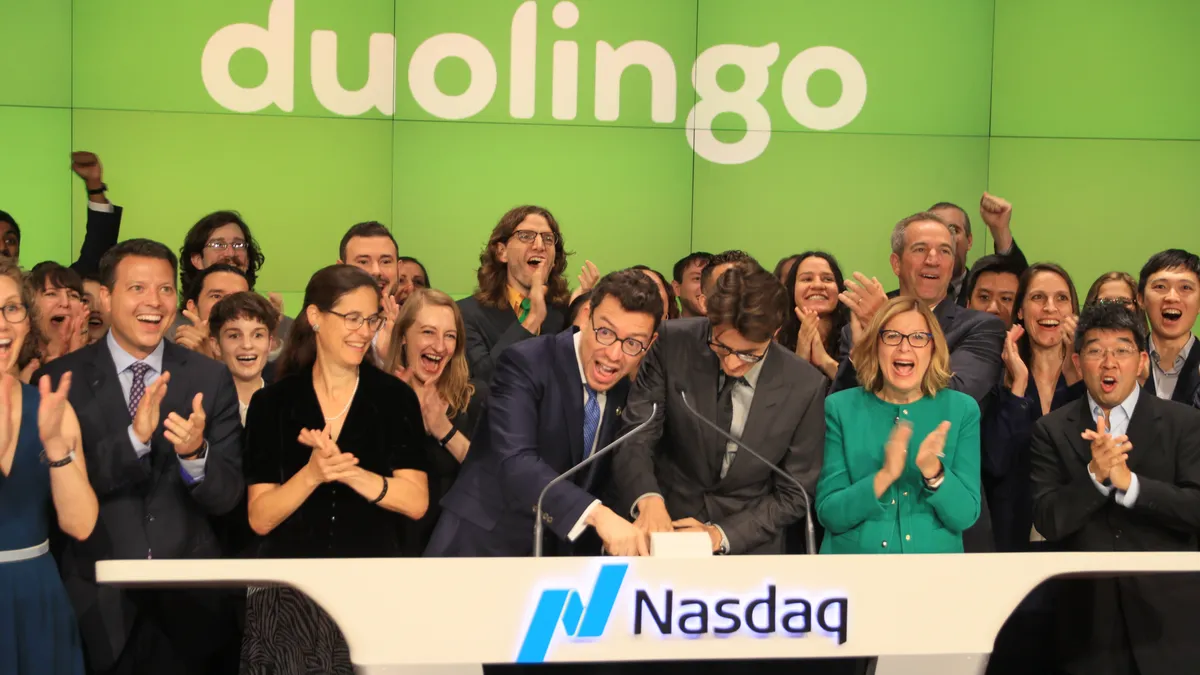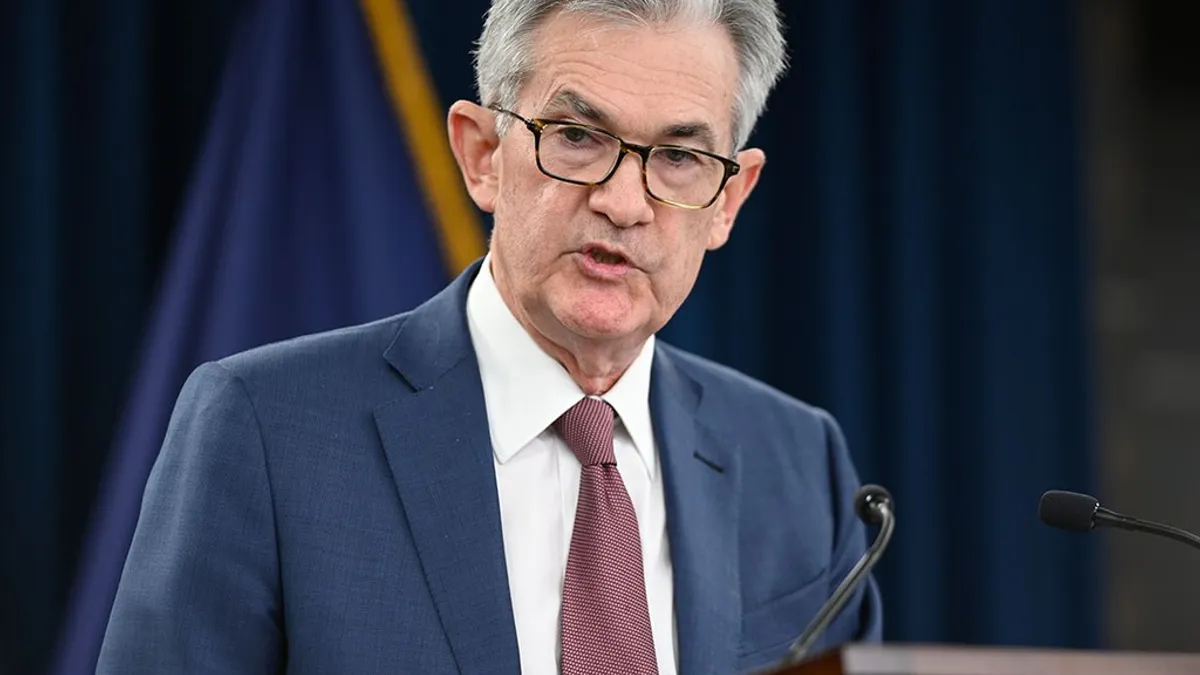On Wednesday, language learning app Duolingo raised $521 million in an initial public offering priced above the marketed range. It priced 5.1 million shares at $102 each on Tuesday, an increase on top of an increase; on Monday, it said it would be marketing them for $95 to $100.
The company’s stock began trading at $141.40 a share, 35% higher than Tuesday’s $102 price.
Duolingo now maintains a company valuation of about $3.7 billion based on shares outstanding, up from its most recent private market valuation, in its Series H round in November 2020, of $2.4 billion.
“The stock price is always going to do what the stock price does,” CFO Matt Skaruppa told CFO Dive on opening day. “We've released it to the market; we can no longer control it. But we're really excited.”
Last year, the Pittsburgh-based company disclosed annualized revenue growth of 129%, to $161.7 million, CNBC reported. For the quarter ended March 31, it reported $55.4 million in revenue, a 97% year-over-year jump.
It intends to use its raised capital to fund its R&D-led growth. “The finance team’s job is not to direct those funds in any particular way; it's just to make sure we're being really efficient and thoughtful with how we invest,” Skaruppa said. “That's our focus over the next little bit: making sure, operationally and as a business, we're deploying capital in really [return on investment]-effective ways.”
Duolingo hired Skaruppa as its first CFO in February 2020. He joined from Goldman Sachs Investment Partners, where he served as a senior member of a venture and growth equity fund of more than $1.2 billion. Prior to Goldman Sachs, he spent five years as an operating executive for KKR Capstone, a private equity firm, advising CEOs and CFOs managing company growth.
“My role in private equity was mainly in operations, and making sure the financials of the business flow through to the actual processes, discipline, skills and people you put in place, and being really disciplined about it,” Skaruppa said. “Duolingo already had a ton of operating discipline in place.”
Duolingo had a high-performing, scalable enterprise resource planning system prior to the pandemic, when its growth surged, which meant Skaruppa, in his early days, was free to focus on growing out the finance team, which he expanded from four or five people to 16 or 17.
The company offers courses in 40 languages to approximately 40 million monthly users. Its flagship app has been downloaded more than 500 million times, and is the top-grossing app in the education category on both Google Play and in the Apple App Store.
During school closures last spring, it accelerated the release of an educational app for children ages 3 to 7. It also saw a 2,000% uptick in the use of its online English-proficiency test, allowing more international students to apply to U.S. colleges that traditionally required an in-person exam.
The company’s IPO is “a bellwether of sorts” for the larger U.S. edtech ecosystem, TechCrunch wrote earlier this month. “If Duolingo can price and trade well, investors in private companies may be more willing to invest, given a more proven and attractive exit market,” it said. “On the other hand, if Duolingo prices weakly or trades poorly, the company could place a wet blanket atop the startup edtech world.”
The pandemic "sparked a radical shift towards online learning, and its effects are likely to be enduring,” the company said in its S-1. "To put our scale in context, there are more people in the United States learning languages on Duolingo than there are foreign language learners in all U.S. high schools combined, and there are more people learning certain languages on Duolingo, like Irish and Hawaiian, than there are native speakers of those languages worldwide."
In going public, Duolingo did not consider merging with a special purpose acquisition company (SPAC), despite the method’s popularity.
“I think SPACs are a great way for businesses that fit the right profile to go public,” Skaruppa said. “We have a track record of revenue, bookings, profitability and cash flow. And we had a story of taking those things and growing them, versus some companies [that] don't have a track record and want to tell the future-forward story.”
Duolingo knew quickly that a regular IPO, where it built on the story it already had formed with investors, was the right way to go. “A SPAC wasn’t a long consideration for us,” Skaruppa said.





















